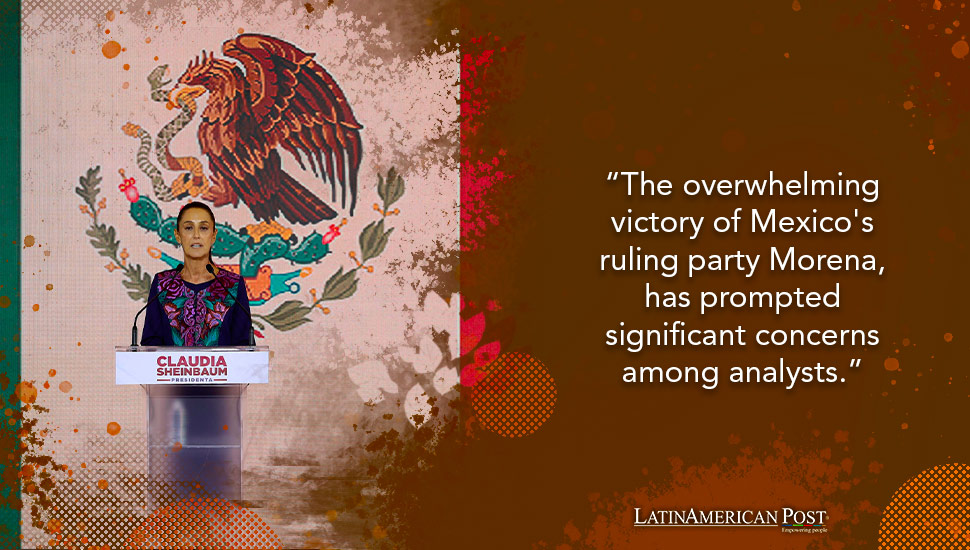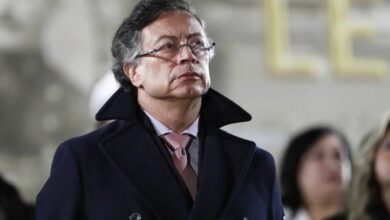Mexico’s Historic Election Raises Questions Over Political Balance

The sweeping victory of Mexico’s ruling party in the country’s most significant elections has sparked concerns over checks and balances, potential radicalization of the ruling party, and market volatility.
The overwhelming victory of Mexico’s ruling party, Morena, in the historic elections held on June 2 has prompted significant concerns among analysts regarding the future political landscape and its implications for economic stability. With nearly 100 million voters casting their ballots, the election marks a pivotal moment in Mexican history, likely to result in the country’s first female president, Claudia Sheinbaum.
Preliminary results indicate that Sheinbaum, supported by the ruling party and its allies, secured a decisive win with nearly 30 percentage points over her nearest rival. The sweeping success of Morena, founded by the current president, Andrés Manuel López Obrador, signals a continuation of his policies and raises questions about the future of checks and balances in the country’s political system.
“This overwhelming victory of Morena is likely to be viewed negatively by the market, as it raises significant questions about the system of checks and balances in the country,” warned Swiss bank UBS in their analysis titled ‘Mexicans Voted for Policy Continuity.’
UBS analysts highlighted that Morena and its allies, the Labor Party (PT) and the Green Ecologist Party of Mexico (PVEM), could achieve a supermajority in the Chamber of Deputies and a simple majority in the Senate. This would grant them substantial legislative power to enact significant reforms, potentially influencing the judiciary, the National Electoral Institute (INE), and the pension system.
Implications for the Mexican Congress
A report from Barclays echoed these concerns, noting Morena’s “unexpectedly overwhelming victory.” With an estimated 58.3% to 60.7% of the vote, the ruling coalition is projected to secure between 76 and 88 seats in the Senate and between 346 and 380 seats in the Chamber of Deputies. This majority could enable the passing of significant reforms, including those affecting autonomous bodies and the constitution, even before Sheinbaum assumes office on October 1.
Barclays also noted that the potential supermajority in both chambers would allow Morena to push through reforms proposed on February 5. The new legislators, who took office a month before Sheinbaum, could approve these changes swiftly.
Judicial Independence and Future Reforms
ControlRisk, a global risk consultancy, pointed out that the Supreme Court of Justice of the Nation (SCJN) could become a “lesser counterbalance” as four new justices with similar opinions to the ruling party will be appointed during Sheinbaum’s tenure, which ends in 2030. UBS emphasized the importance of monitoring the SCJN’s role as the ultimate arbiter of constitutionality, stressing the need for judicial independence.
Mexican bank Mifel highlighted the market’s reaction to the “very substantial victory,” which contrasted with expectations of a closer election. This significant win raises the possibility of constitutional changes and potential radicalization by the ruling party.
The election results have already had a noticeable impact on Mexico’s financial markets. The Mexican peso, often called the “superpeso,” depreciated by 4.42% on Monday, dropping from 16.96 pesos per dollar to 17.71, according to the Bank of Mexico. The peso reached a low of 16.92 pesos and a high of 17.73, marking its highest level since November 2023. This depreciation made the peso the most devalued currency among major pairs against the dollar.
Simultaneously, the Mexican Stock Exchange’s main index, the IPC, fell by 6.11%, its sharpest decline since March 9, 2020, when it dropped by 6.42%. This drop reflects investor concerns over the implications of Morena’s overwhelming victory and the potential for significant policy changes.
Historical Context: Mexico’s Political Landscape
Mexico’s political history is marked by long periods of single-party dominance, particularly under the Institutional Revolutionary Party (PRI), which ruled for much of the 20th century. Vicente Fox’s election in 2000 ended PRI’s hold on power, ushering in a new era of multi-party democracy. Andrés Manuel López Obrador’s election in 2018 represented a significant shift towards left-wing populism and a break from the neoliberal policies of his predecessors.
The recent election results suggest a consolidation of López Obrador’s political project, with Morena positioned to exert considerable influence over Mexico’s future. This potential shift in power dynamics raises essential questions about the balance of power and the role of democratic institutions in safeguarding political pluralism and accountability.
The prospect of Morena’s legislative dominance has significant implications for Mexico’s policy landscape. Analysts have expressed concerns over potential reforms to key institutions, including the judiciary and the electoral system. These changes could alter the checks and balances that underpin Mexico’s democratic framework, leading to a concentration of power in the executive branch.
Economic policies are also under scrutiny. Morena’s platform focuses on social programs and state intervention in the economy, which could impact business confidence and investment. The party’s stance on energy policy, in particular, has raised concerns among investors, given its emphasis on strengthening state-owned enterprises and reducing reliance on private investment.
The Path Forward: Stability and Reform
As Claudia Sheinbaum prepares to take office, the new administration will face the challenge of balancing continuity with necessary reforms. Ensuring economic stability while addressing social inequities will maintain public support and foster sustainable growth. The government’s approach to institutional reforms will also be closely watched, with implications for the rule of law and democratic governance.
Internationally, Mexico’s relationship with key trading partners, particularly the United States, will remain a critical factor in its economic outlook. Continuing the US-Mexico-Canada Agreement (USMCA) provides a framework for trade and investment. Still, the new administration’s policies must align with broader economic trends and geopolitical dynamics.
Mexico’s historic election has ushered in a new political era marked by the potential for significant change and continuity. Morena’s overwhelming victory and Claudia Sheinbaum’s anticipated presidency reflect the electorate’s support for López Obrador’s policies while also raising important questions about the future of democratic governance and economic stability.
Also read: Mexico’s Female President and the Immigration Imperative
As Mexico navigates this new landscape, the role of democratic institutions, market responses, and international relations will be critical determinants of its path forward. The country’s ability to balance reform with stability will shape its future, both domestically and on the global stage.





